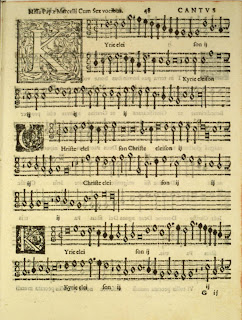“To stop the flow of music would be like the stopping of time itself, incredible and inconceivable.”- Aaron Copland
From the research we can say that music was discovered from both Africa and Europe but Africa just stayed with the tribal unique music, European countries began to move ahead in every field including music. After the the middle age came "The Renaissance period(1450-1600)". Renaissance period was consider to be the most developed and golden period for Europe. Europe excelled in most of the filed during this period.During the Renaissance Period, vocal music was still more important then instrumental. A humanistic interest in language created a close relationship between words and music during this time. Composers began to write music to give deeper meaning and emotion to the words in their songs. They wrote in a style referred to as word painting, where the music and words combine to form a representation of poetic images. Renaissance music is very emotional music, although to us it seems to be much calmer. This is because the emotion is expressed in a balanced way, without extreme contrasts of dynamics, tone color, and rhythm. Renaissance music has a mostly polyphonic texture, which means there are many lines of music being played at the same time. As opposed to medieval times, this music has a more full sound, because the bass register was used, expanding the range of music to about four octaves. Each line of melody has rhythmic independence, giving Renaissance music a more flowing rhythm and not a sharply defined beat. The melodies are also easy to sing because they move along scales with few large leaps.
Music was becoming more popular during this time. Much of this was due to the invention of the printing press, which could circulate copies of music. The number of composers also began to increase. The Renaissance had the ideal of the “universal man” and believed that every educated person was to be trained in music. Musicians still worked in the churches, courts, and towns. The size of church choirs grew. But unlike the Middle Ages where just a few soloists performed in the church, an entire male choir would now sing. Music was still important in the church, although it has shifted more to the courts. The kings, princes, and dukes were all fine composers. One court alone might have had ten to sixty composers consisting of vocalists and instrumentalists. There was a music director for each court that would compose and direct the court’s performers. The town musicians would perform for civic processions, weddings, and religious services. Musicians now had a higher status in society with better pay, and they wanted to be known and sought credit for their work.
Before middle age and The Renaissance, music was there but the practice of music only started from middle age.


No comments:
Post a Comment